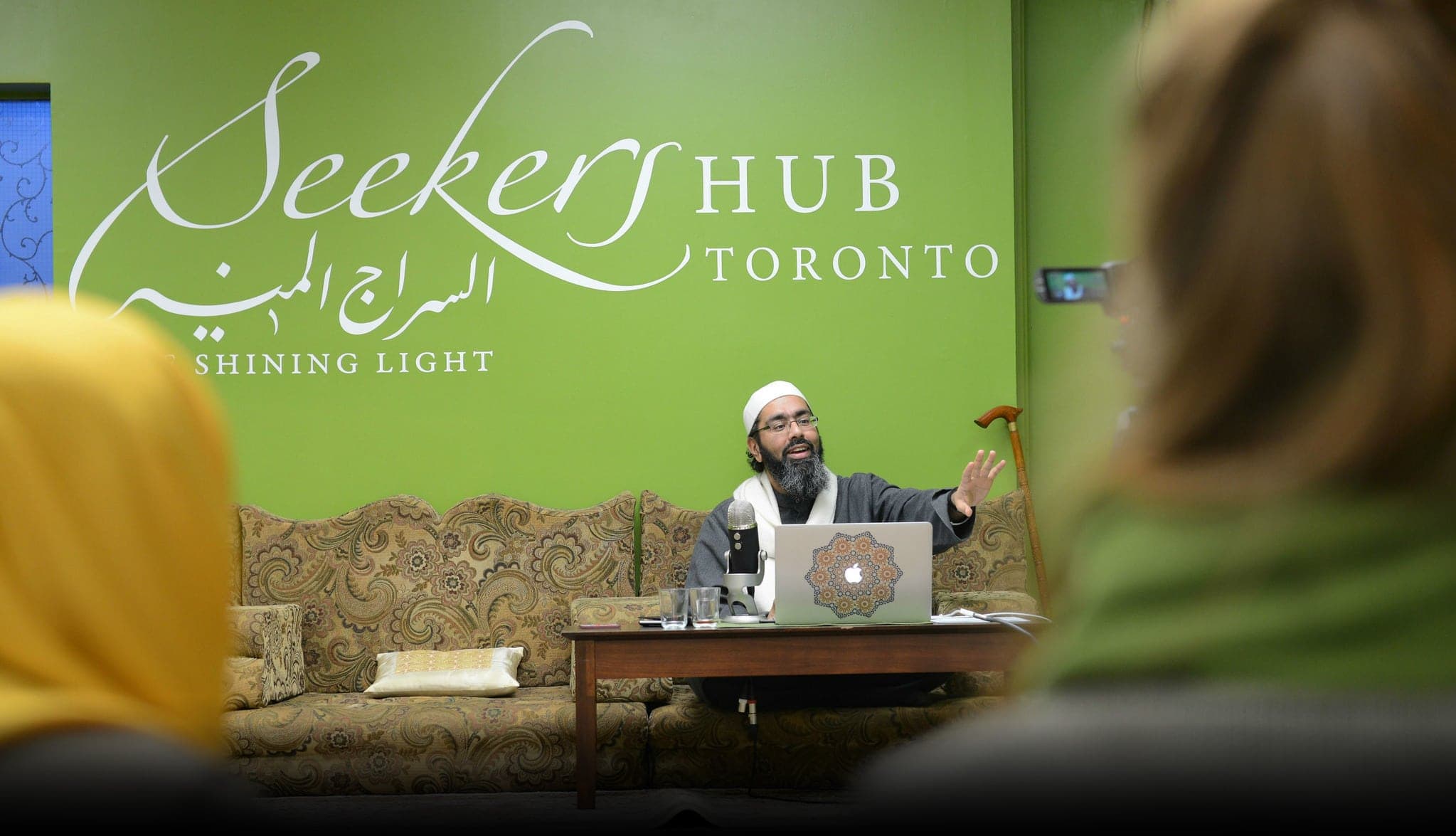How To Attain Focus, Patience And Stillness In A Chaotic World
“The scholars sacrifice immediate benefit for long-term benefit,” Shaykh Faraz Rabbani
Today, the modern world lives in convenience, expecting to be served, rather than to serve. Although some may argue that convenience and technology save time and reduce physical labor, we continue to complain that we do not have time or energy, reducing ourselves to potatoes sitting on the living room’s couch.
Focus: a salient virtue within Islamic mysticism
Traditionally, focus — a salient virtue within Islamic mysticism — was regarded as a core characteristic of the aspirant, especially among the Sufis. As such, the saints were focused individuals who, despite the calamities they faced, were depicted in the Qur’an as, “Those who are neither fearful nor sad.” In simple words, the saints enjoy the present moment, leaving their past to the will of God and their future to His decree. Hence, the seeker of knowledge is, essentially, a seeker of God, striving, with discipline, practice, and patience to maximize his benefit in every moment while taking the most excellent of ways to do so.
Impatience: Your place is where God has positioned you
Patience is a trait that the seeker should inculcate to facilitate depth in knowledge. In his lexicon on Sufi terminology, Ibn Ajiba defines patience as, “An imprisonment of the heart in submission to God’s command.” Impatience, if understood by the contrary (mafhum al-mukhalafa), would be to release the ego in contradiction to God’s command.
To understand this better, my math teacher, Dr. Yousseif Ismail, once told me that impatience was the desire to cross the current moment that God had willed for you to be in, for a moment that you believed to be better for yourself. In practice, patience is significantly important to the student for a number of reasons.
Firstly, our teachers say, “Your place is where God has positioned you,” suggesting that one should be content with one’s condition, wherever God has decreed him to be. The student of knowledge should recognize that he is a student and must act according to the etiquette of one.
Unstable premises lead to faulty conclusions
As for the second, in order to have depth in knowledge, the student of knowledge should not speak without internalized and externalized foundations that inform his speech, unless a need arises to do so or he is given permission by his teacher(s). The reason given for this is closely related to the he first: a student should not speak in the place of a scholar, fooling the community and inciting his own ego — a celebrity preacher. Unstable premises lead to faulty conclusions; hence, the true aspirant takes the time to ground himself in knowledge, submitting to his current instant, and follows the lead of his teachers throughout.
Prioritise your objectives
To maximize my own time and focus, Shaykh Faraz advised me to have a clear objective of my studies, so I applied the categories of need to my own studies. The scholars divide need into three categories:
- necessities (dharuriyat)
- needs (hajiyat)
- perfections (takmilat)
For example, when considering a new home, you ensure that its foundations are strong, since the house will collapse without solid ground. Then after, you may inspect the ceiling and walls for cracks, because a house is incomplete without these secondary things. After ensuring the house is livable and safe, you might begin to think of ways to beautify your living space with artwork, curtains, rugs, although such adornments are not essential to a house — you can live without them. Similarly, like any profession, one needs to take the proper means to acquire his goals; otherwise, means become ends.
Lastly, in taking steps towards focus, the individual must seek the counsel of God, a metaphysical correspondence to his subjective reality, and the advice of masters, an earthly exchange from experts for an objective assurance (istikhara wa istishara). Thus, remember that you are the present; the future passed a moment ago, but take from those who have passed and know that God is ahead — you are in between the two.
Yousaf Seyal
Photo by Frida Eyjolfs
Knowledge is the lost property of the believer. Deepen your understanding by taking a short course with SeekersHub.
Resources for seekers:
- Habib Hussein Al Saggaf on Beneficial Knowledge and Intentions
- What is Beneficial Knowledge in Islam? by Dr. Umar Abd-Allah
- The Lost Tools of Learning
- Is It Sinful to Seek Knowledge without Trying to Become a Scholar?
- Differences of Opinion & Determining Sound Scholarship
- Why Do We Need Scholars When There’s Quran And Sunnah
- VIDEO: Learning With The Tools Of Sound Understanding
- Ten Adab of Seekers of Knowledge
- Why Learn From A Teacher?
- The Etiquette of Seeking Knowledge
- Should I Finish My College Degree Before Seeking Sacred Knowledge?
- Where did the shaykhas go? Afterthoughts on Female Scholarship
- “Signs of the Scholar of the Hereafter”
- How ISIS prevents scholars from teaching
- Advice Regarding Being a Student of Knowledge and Taking Notes
- Raising Muslim Children On The Straight Path
- Creating & Sustaining North American Muslim Scholarship

